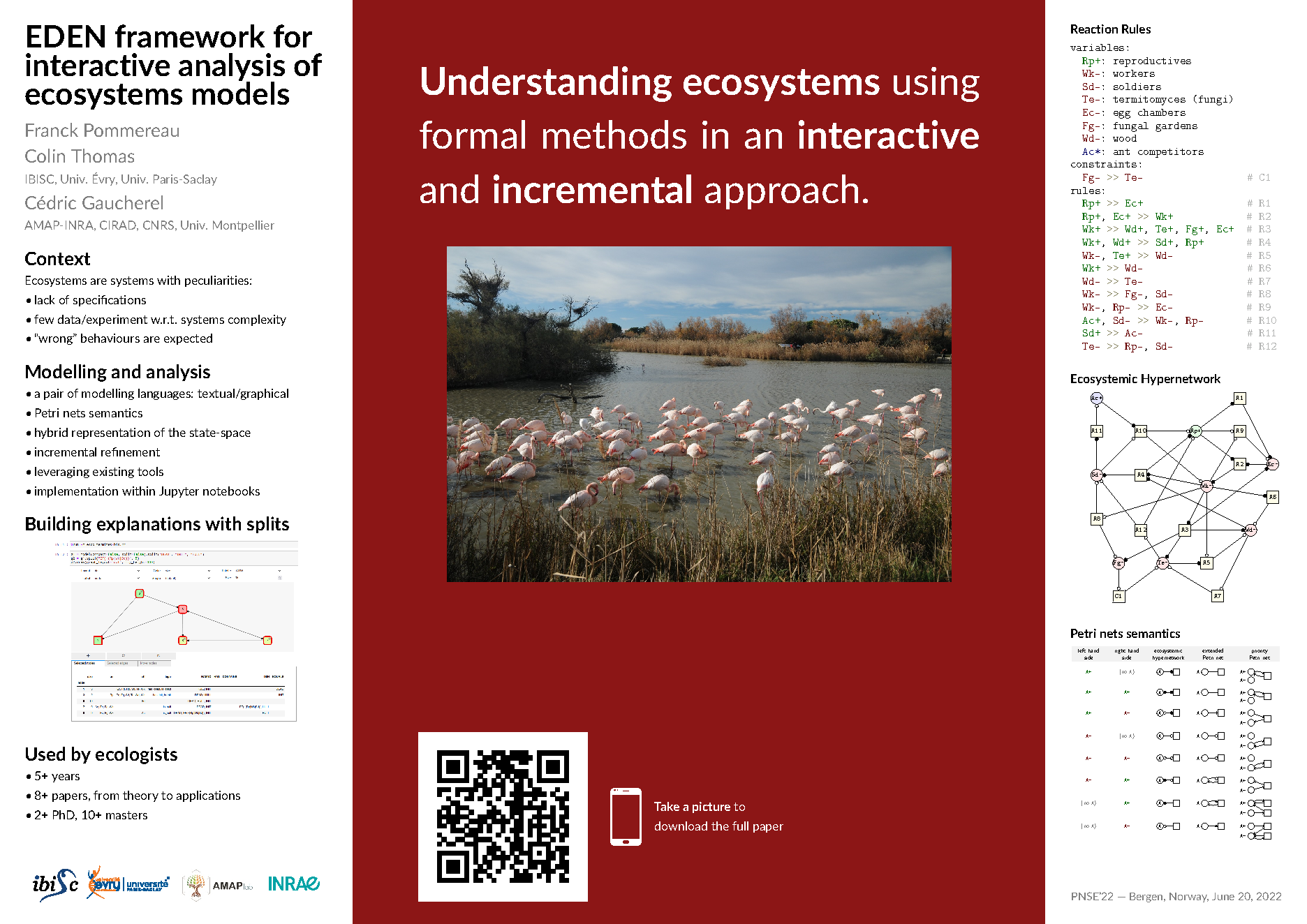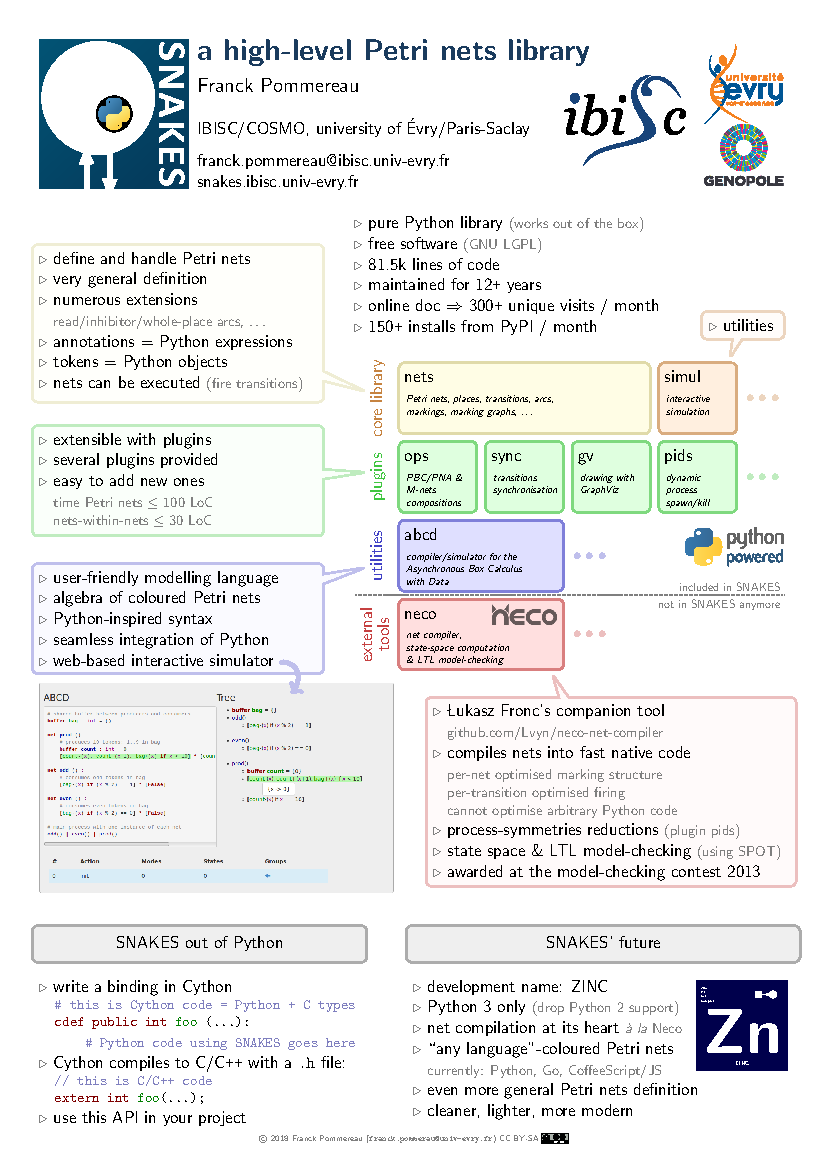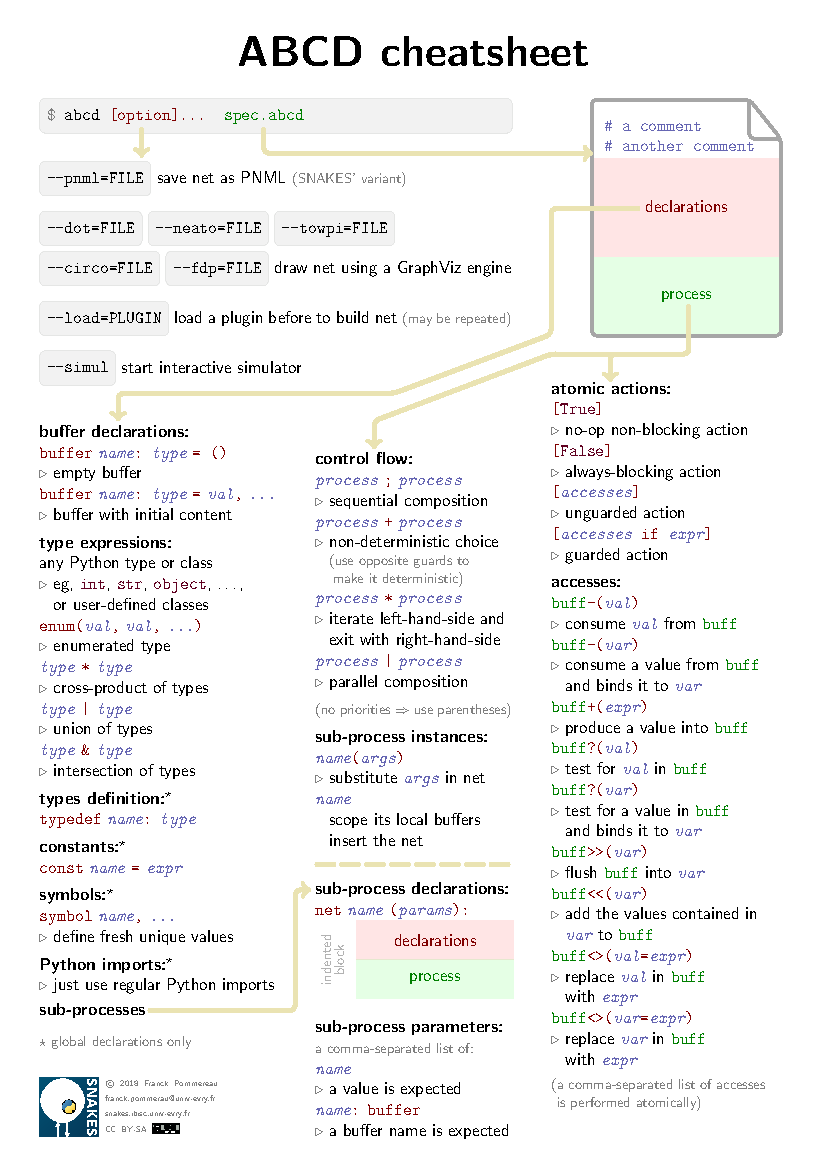Publications
My publications are hosted at my HAL CV.
Formal modelling and analysis of ecosystems
The Earth is experiencing its 6th mass extinction: experts estimate that 20% to 50% of living species may go extinct during the 21st century.1 In this context, understanding ecosystems and their dynamics is crucial to be able to take conservation actions. One way for this understanding, and in particular the discovery of the rules that govern ecosystems dynamics, is to resort to modelling and formal analysis.
For this purpose, we are developing the framework EDEN 3 4 5 6 7 that provides ecologists with a way to extract the main dynamics of ecosystems and their drivers, through various features:
- languages to build discrete models of the systems of interest
- hybrid representation of the state-space as graphs of components: symbolic set of states linked by transitions
- a way to split incrementally the components w.r.t. various properties (in particular CTL formulas) to obtain a refined view of the state-space
- the ecco tool implements EDEN and can be used interactively within Jupyter notebook

Algebras of colored Petri nets
These are Petri net based formalisms equipped with operators like those typically found in process algebras. By enriching Petri nets with additional labelling, it becomes possible to define these operators as Petri nets compositions or transformations. As a consequence, an important difference with process algebras is that the expected behavior is obtained by a static arrangement of the Petri nets instead of by a dynamical enforcement through the semantics. In other words, if the additional labelling is discarded, we just use regular Petri nets and any existing tool for Petri nets can be used to analyze the obtained models.
Numerous variants of such algebras of Petri nets have been defined over years, forming a rich family that was eventually unified through a consistent presentation.8 This forms a modular framework including varied modelling features: control flow, synchronous and asynchronous communication, exceptions, threads, functions and time. Most of this has been implemented in the SNAKES toolkit.


-
Millennium Ecosystem Assessment. Ecosystems and Human Well-being, Biodiversity Synthesis. 2005 ↩
-
C. Gaucherel, H. Théro, A. Puiseux, V. Bonhomme. Understand ecosystem regime shifts by modelling ecosystem development using Boolean networks. Ecological Complexity, 31. 2017 ↩
-
C. Gaucherel, F. Pommereau. Using discrete systems to exhaustively characterize the dynamics of an integrated ecosystem. Methods in Ecology and Evolution 10(9). 2019 ↩
-
F. Pommereau, C. Thomas, C. Gaucherel. EDEN framework for interactive analysis of ecosystems models. Proc. of PNSE‘22. 2022 ↩
-
M. Cosme, C. Thomas, C. Gaucherel. On the history of ecosystem dynamical modeling: the rise and promises of qualitative models. Entropy 25(11-1526). 2023. ↩
-
C. Thomas, M. Cosme, C. Gaucherel, F. Pommereau. Model-checking ecological state-transition graphs. PLOS Computational Biology 18(6). 2022 ↩
-
C. Gaucherel, M. Cosme, C. Noûs, F. Pommereau. A single changing hypernetwork to represent (social-)ecological dynamics. bioRxiv, 2024. Peer-reviewed and recommended by PCI NetworkSci 100148 ↩
-
F. Pommereau. Algebras of coloured Petri nets. Habilitation thesis. LAP LAMBERT Academic Publishing. 2010. ISBN 978-3843361132. ↩